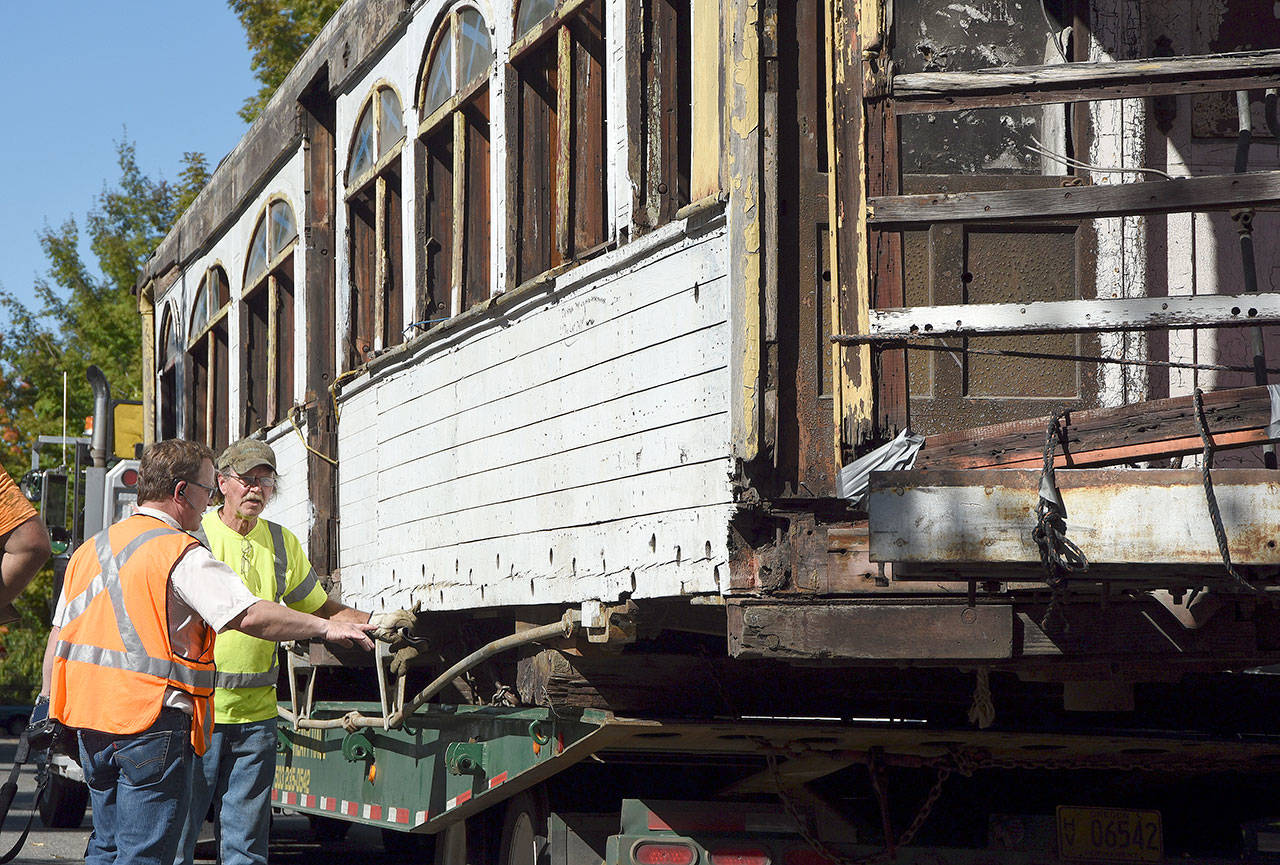“It takes a little imagination,” Northwest Railway Museum Director Richard Anderson said, as a deteriorating 1907 train car arrived in Snoqualmie. A little imagination, but that’s all that’s needed to envision the luxurious origins of this newest acquisition by the Northwest Railway Museum.
This car, now without siding or wheels, was a donation from Paul Class and the Streetcar Investment Group, in Petaluma, Calif., but the all-electric interurban car is actually a Washington native.
Car 523 is the last known surviving Seattle-Tacoma electric interurban car, which operated a century ago on the Puget Sound Electric Railway. These cars, higher speed than in-city trolleys and cable cars, connected Renton, Kent, Auburn, Orillia, Milton, Fife, Tacoma, and other cities in the area.
The cars ran on electricity, making the railroad one of the early and at the time, biggest, consumers of electricity from the hydropower plant under Snoqualmie Falls.
“The Puget Sound Electric Railway was a big customer,” Anderson explained. “People didn’t have electric lights in their homes, so (the power company) had to have someone sell it to.”
Electric motors attached to the wheels drew power for the train from an electrified third rail, to reach speeds up to 60 mph. Some cars, like 523, also had the overhead apparatus for connecting to suspended power lines, for travel within cities.
The Puget Sound Electric Railway operated for more than 25 years but operations ended Dec. 31, 1928, when the company defaulted on bond payments.
Few artifacts remain from the electric interurban railroad. Portions of the right of way in King and Pierce Counties have been re-purposed as the Interurban Trail.
Northwest Railway Museum was excited to accept the donation of Car 523 last week and made arrangements to donate a flatbed car in the museum’s collection to the Polson Museum in Hoquiam, to make room for the new car. Another exhibit, the Weyerhaeuser steam locomotive 108, was sold last year to the Black Hills Central Railroad in South Dakota, to make room for the H.K. Porter steam locomotive, donated to the museum by the city of Bellingham, which arrived in the Valley Sept. 21.
Car 523 was loaded onto a truck last Saturday, Sept. 23 in Petaluma, for the trip to Snoqualmie. It arrived Wednesday afternoon, Sept. 27, and was offloaded to a museum flatbed car, for the trip to the museum’s conservation center, where it will be restored and eventually put on display.
King County 4Culture for funding the cost of transporting the car to Snoqualmie.



